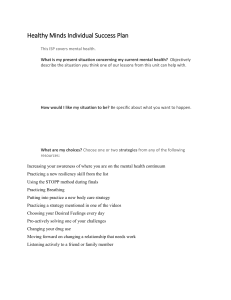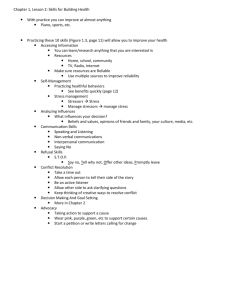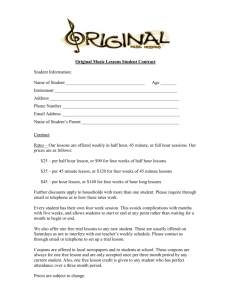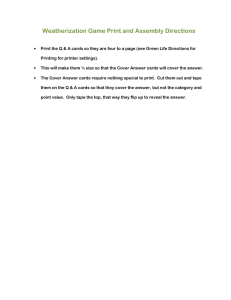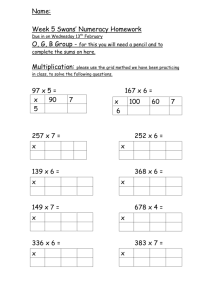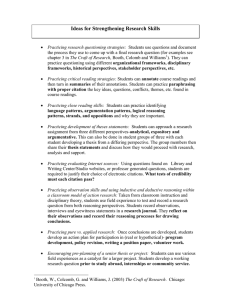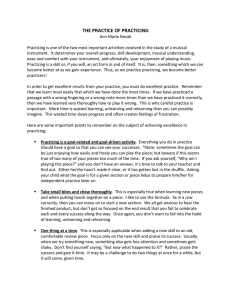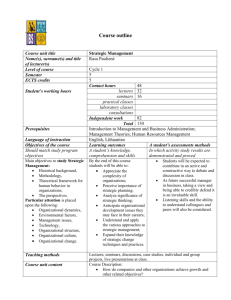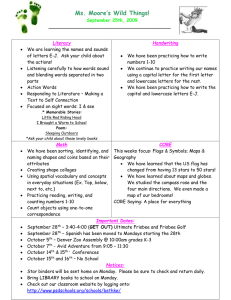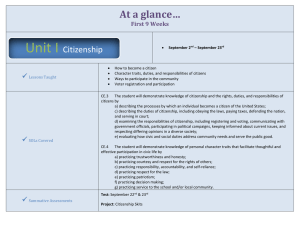Survival Tips for the Practicing Parent M. R. Germain
advertisement
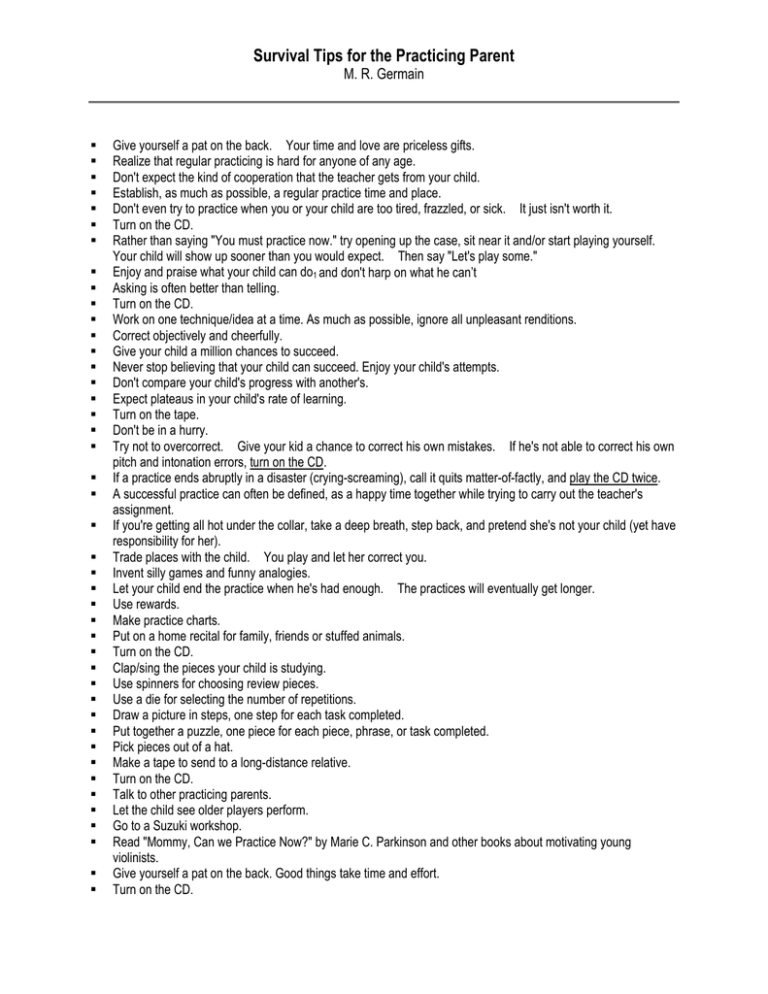
Survival Tips for the Practicing Parent M. R. Germain Give yourself a pat on the back. Your time and love are priceless gifts. Realize that regular practicing is hard for anyone of any age. Don't expect the kind of cooperation that the teacher gets from your child. Establish, as much as possible, a regular practice time and place. Don't even try to practice when you or your child are too tired, frazzled, or sick. It just isn't worth it. Turn on the CD. Rather than saying "You must practice now." try opening up the case, sit near it and/or start playing yourself. Your child will show up sooner than you would expect. Then say "Let's play some." Enjoy and praise what your child can do1 and don't harp on what he can’t Asking is often better than telling. Turn on the CD. Work on one technique/idea at a time. As much as possible, ignore all unpleasant renditions. Correct objectively and cheerfully. Give your child a million chances to succeed. Never stop believing that your child can succeed. Enjoy your child's attempts. Don't compare your child's progress with another's. Expect plateaus in your child's rate of learning. Turn on the tape. Don't be in a hurry. Try not to overcorrect. Give your kid a chance to correct his own mistakes. If he's not able to correct his own pitch and intonation errors, turn on the CD. If a practice ends abruptly in a disaster (crying-screaming), call it quits matter-of-factly, and play the CD twice. A successful practice can often be defined, as a happy time together while trying to carry out the teacher's assignment. If you're getting all hot under the collar, take a deep breath, step back, and pretend she's not your child (yet have responsibility for her). Trade places with the child. You play and let her correct you. Invent silly games and funny analogies. Let your child end the practice when he's had enough. The practices will eventually get longer. Use rewards. Make practice charts. Put on a home recital for family, friends or stuffed animals. Turn on the CD. Clap/sing the pieces your child is studying. Use spinners for choosing review pieces. Use a die for selecting the number of repetitions. Draw a picture in steps, one step for each task completed. Put together a puzzle, one piece for each piece, phrase, or task completed. Pick pieces out of a hat. Make a tape to send to a long-distance relative. Turn on the CD. Talk to other practicing parents. Let the child see older players perform. Go to a Suzuki workshop. Read "Mommy, Can we Practice Now?" by Marie C. Parkinson and other books about motivating young violinists. Give yourself a pat on the back. Good things take time and effort. Turn on the CD.
